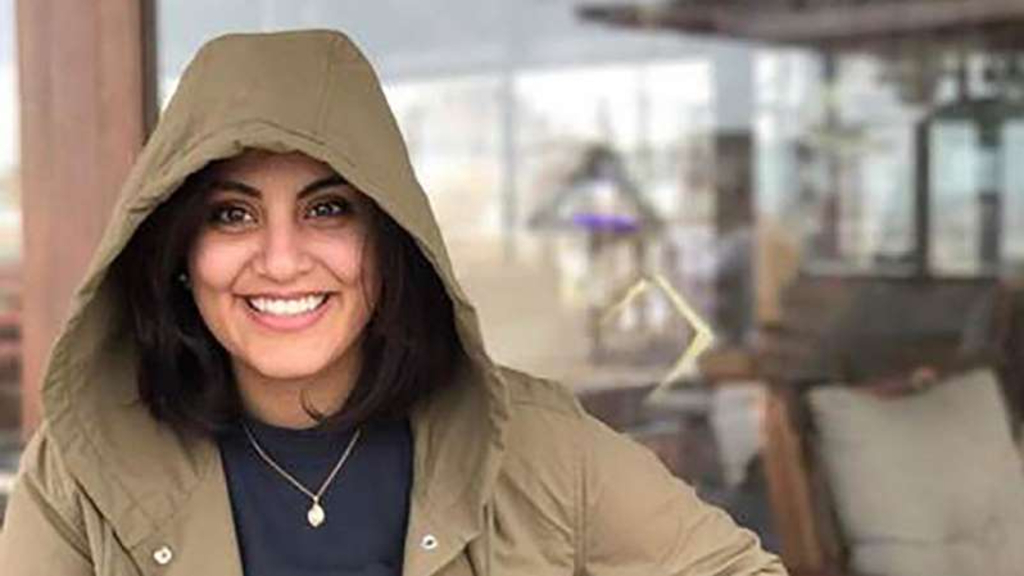A Saudi court Monday handed prominent activist Loujain al-Hathloul a prison term of five years and eight months for terrorism-related crimes, but a partially suspended sentence will allow her release within months, relatives said.
Hathloul, 31, was arrested in May 2018 with about a dozen other women activists just weeks before the historic lifting of a decades-long ban on female drivers, a reform they had long campaigned for, sparking a torrent of international criticism.
A suspension of half her sentence follows intense global pressure for her release and comes ahead of next month’s inauguration of US President-elect Joe Biden, who has pledged a tough stance on the kingdom over human rights after it largely got a free pass under President Donald Trump.
The court handed Hathloul a prison term of five years and eight months, but suspended two years and 10 months of the sentence “if she does not commit any crime” within the next three years, the pro-government online outlet Sabq and other media allowed to attend her trial cited the court as saying.
The women’s rights activist was convicted of cooperating with entities criminalized by the kingdom’s anti-terrorism law, inciting regime change and seeking to disrupt public order, they added.
“A suspension of 2 years and 10 months in addition to the time already served (since May 2018) would see her (released) in approximately two months,” Lina al-Hathloul, the activist’s sister, wrote on Twitter.
Another source close to her family and the London-based campaign group ALQST said she would be released by March next year.
The court also banned the activist from leaving the kingdom for five years, her sister and the source said.
This verdict was a “face saving exit strategy” for the Saudi government after it came under severe international pressure for her release, the source told AFP.
The activist’s Toronto-based brother, Walid, denounced the trial as a “sham” and “politically motivated”.
“The moment (Loujain) saw the verdict she started crying because… she had been labelled as a terrorist,” Walid told AFP.
“We are going to be appealing the verdict even though (we) don’t have any hope from the Saudi justicial system.”
A motion to appeal can also be filed within a month by the public prosecutor, who Loujain’s family said had sought a 20-year jail term for her.
‘Deeply troubling’
The Geneva-based UN Human Rights office described the activist’s conviction and sentence after she was “arbitrarily” detained since 2018 as “deeply troubling”.
“We understand early release is possible, and strongly encourage it as matter of urgency,” it said on Twitter.
France’s foreign ministry said it reiterated its call for Hathloul’s “quick release”, a view echoed by Germany’s human rights commissioner Barbel Kofler.
“Saudi Arabia’s sentencing of Loujain al-Hathloul for simply exercising her universal rights is unjust and troubling,” tweeted Jake Sullivan, the national security advisor in Biden’s incoming administration.
Biden has pledged to intensify scrutiny of Crown Prince Mohammed bin Salman‘s human rights failings. He is expected to push the kingdom to release dual US-Saudi citizens, activists and royal family members, many of whom are detained without any formal charges.
After being tried in Riyadh’s criminal court, Hathloul’s trial was transferred last month to the Specialized Criminal Court, or the anti-terrorism court, which campaigners say is used to silence critical voices under the cover of fighting terrorism.
Earlier this month, Foreign Minister Prince Faisal bin Farhan told AFP that Hathloul was accused of contacting “unfriendly” states and providing classified information, but her family said no evidence to support the allegations had been put forward.
While some detained women activists have been provisionally released, Hathloul and others remain imprisoned on what rights groups describe as opaque charges.
The pro-government Saudi media has branded them as “traitors” and Hathloul’s family alleges she experienced sexual harassment and torture in detention. The Saudi court recently dismissed those allegations.
The detention of women activists has cast a renewed spotlight on the human rights record of the kingdom, an absolute monarchy which has also faced intense criticism over the 2018 murder of journalist Jamal Khashoggi in its Istanbul consulate.


